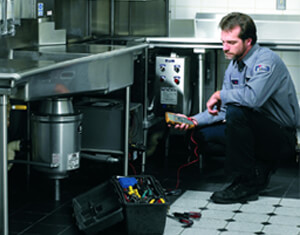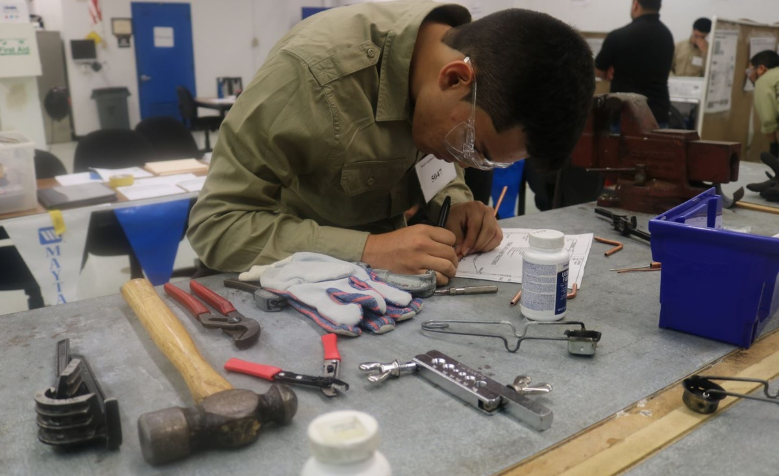Important Tips for Effective Ref Fixing to Extend Device Life-span
When it comes to your fridge, correct repair work and upkeep are crucial for longevity. Recognizing common issues and knowing when to act can make all the distinction.
Understanding Typical Fridge Troubles
Refrigerators are essential in keeping your food fresh, yet they can come across a variety of common issues that interrupt their efficiency. One frequent concern is inadequate air conditioning. If you see food spoiling quicker than usual, examine the thermostat setups or consider if the door seals are harmed. One more usual issue is excessive sound, which could show a malfunctioning compressor or a stopping working fan. You might likewise experience water merging inside or underneath the refrigerator; this usually arises from a stopped up defrost drainpipe or a faulty water line. Furthermore, if your refrigerator's light isn't working, it could be a basic bulb problem or an issue with the door switch. Finally, ice build-up in the fridge freezer can impede air movement and cooling down efficiency. Recognizing these issues early can save you money and time out of commission, guaranteeing your refrigerator runs efficiently and successfully.
Normal Upkeep Practices
To maintain your devices running efficiently, you require to stay on top of normal maintenance techniques. Tidy the condenser coils, check the door seals, and keep an eye on the temperature level settings to assure peak performance. These basic tasks can save you time and money on repair work down the line.
Tidy Condenser Coils Frequently
Cleansing your condenser coils regularly can significantly improve your device's efficiency. Dirt and dirt develop up on these coils over time, causing your appliance to function tougher and take in more energy. To keep them tidy, unplug your home appliance and carefully remove any type of safety covers.
Examine Door Seals
Three simple steps can aid you ensure your device's door seals are in great problem. Check the seals regularly for any kind of fractures, rips, or indicators of wear. These damages can result in air leaks, influencing efficiency. Second, tidy the seals using cozy, soapy water to eliminate any kind of particles or grime. A tidy seal assures a limited fit and much better efficiency. Execute a basic test by closing the door on an item of paper. If you can conveniently draw it out without resistance, the seal may require changing. By complying with these actions, you'll preserve your device's performance and durability, conserving you cash on power expenses and repair work in the future.
Display Temperature Level Settings
Routinely monitoring your device's temperature setups is essential for finest performance and efficiency. Whether you're dealing with a refrigerator, fridge freezer, or oven, maintaining an eye on these settings can stop many issues. For refrigerators, go for temperature levels between 35 ° F and 38 ° F; for fridges freezer, stay 0 ° F. If the temperature levels are expensive or low, your home appliance may function harder, losing energy and reducing its lifespan. Make use of a thermometer to check these setups consistently, particularly after significant adjustments, like relocating your appliance or changing the thermostat. If you observe variations, adjust the settings appropriately and seek advice from the individual manual for advice. By remaining positive regarding temperature surveillance, you'll ensure your home appliances run efficiently and last longer.
Troubleshooting Air Conditioning Problems
When your refrigerator isn't cooling down effectively, it can bring about ruined food and lost money, so attending to the issue without delay is important. Start by examining the temperature level setups to confirm they go to the recommended degrees, usually around 37 ° F for the refrigerator and 0 ° F for the fridge freezer. If the setups are correct, check the door seals for any gaps or damage; a defective seal can enable cozy air to enter.
Following, analyze the vents inside the fridge and freezer. Confirm they're not blocked by food items, as this can interfere with air flow. Listen for the compressor; if it's not running or making unusual sounds, it might need interest. Inspect the condenser coils, typically located at the back or base of the unit. Dust and debris can collect, triggering cooling concerns. Tidy them with a vacuum cleaner or brush to maximize performance. If problems continue, it may be time to call an expert.
Taking Care Of Water Leakage and Ice Accumulation
If you're managing water leak or ice build-up in your device, it's necessary to recognize the resource of the problem. By determining where the water is coming from, you can prevent more problems and prevent expensive repair services. Allow's explore some efficient techniques to tackle these common troubles.
Determine Leakage Resources
Just how can you efficiently determine the resources of water leakage and ice build-up in your appliances? Begin by evaluating the seals and gaskets on your refrigerator and fridge freezer doors. By methodically checking these locations, you'll identify the resource of the trouble, enabling you to take the needed steps to fix it and expand your appliance's life expectancy.
Protect Against Ice Formation
To avoid ice development in your home appliances, beginning by verifying the temperature settings are suitable. If your fridge or fridge freezer is as well cold, it can result in too much read more ice accumulation. Examine the door seals routinely; damaged seals can allow cozy air in, triggering condensation and ice development.
Maintain the appliance well-ventilated and prevent overcrowding, as this can block air movement - Dependable Refrigeration & Appliance Repair Service, Oro Valley, AZ 85755. Additionally, regularly defrost your fridge freezer if it doesn't have an automated defrost function.
If you see water leakage, identify and repair any blocked water drainage holes, as they can add to ice accumulation. Clean the web link coils and verify they're working correctly to maintain peak efficiency. Taking these steps will assist extend your appliance's life expectancy and effectiveness.
Addressing Noisy Fridge Seems
While it may seem startling, a loud refrigerator commonly signals minor problems as opposed to major malfunctions. Identify the resource of the sound. Typical offenders consist of the compressor, fans, and water lines. If you hear a humming sound, it may be the compressor striving; this might simply be a normal procedure noise.
Following, look for loosened things inside. Sometimes, containers or racks can rattle, creating undesirable noise. Tighten or rearrange them to eliminate the noises.
If you notice a clicking noise, it could be the defrost timer. This is usually harmless yet can show it needs assessment.
Lastly, validate your refrigerator is level. An unbalanced appliance can produce resonances and sound. Utilize a level to check, and adjust the feet if needed. Resolving these this article concerns promptly can help maintain your fridge's performance and extend its life expectancy.
When to Change Parts vs. Full Replacement

Consider the expense of repair services versus the appliance's worth. In addition, if you discover recurring issues that maintain recurring, it's an indicator that your device has reached the end of its life.
Understanding When to Call an Expert
Exactly how can you tell when it's time to contact a specialist for device fixing? If you notice unusual noises, scents, or leakages, it's a clear signal that something's incorrect. Don't neglect these signs; they typically suggest deeper issues. If your home appliance quits working entirely or often trips circuit breakers, it's one more red flag.
You must also consider your very own convenience degree with repair work. If you're uncertain concerning identifying the trouble or do not have the right tools, it's ideal to get to out for assistance. Remember, attempting complicated repair services can cause even more damages or even safety risks.

Frequently Asked Inquiries
How Typically Should I Tidy the Refrigerator Coils?
You ought to clean your fridge coils every six months. This aids preserve performance and prevents overheating. If you notice extreme dust or pet dog hair, clean them extra frequently to guarantee your refrigerator runs smoothly.

Can I Utilize Vinegar for Cleansing My Fridge?
Yes, you can utilize vinegar to cleanse your fridge! It's an excellent natural cleanser that gets rid of smells and spots. Washing Machine Repair Dependable Refrigeration & Appliance Repair Service. Simply mix it with water, apply it to surface areas, and clean down for a fresh, tidy refrigerator
What Temperature Should My Refrigerator Be Ready To?
You should set your refrigerator to 37 ° F(3 ° C) for suitable food preservation. This temperature keeps your food fresh while stopping putridity, guaranteeing your grocery stores last much longer and decreasing waste. It's a very easy adjustment you can make!
Does a Refrigerator Required to Be Leveled?
Yes, your refrigerator needs to be leveled. If it's irregular, it can influence cooling down effectiveness and cause excess noise. Examine the leveling legs and change them to guarantee appropriate balance for excellent performance.
Exactly How Can I Minimize Refrigerator Power Usage?
To reduce your fridge's energy intake, maintain it tidy and well-ventilated, examine door seals for leakages, established the temperature in between 35-38 ° F, and stay clear of overwhelming it. These steps can significantly decrease your energy bills.